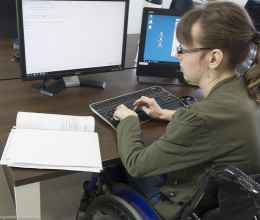
The U.S. immigration system is often referred to as “broken” and for good reason. Due to outdated and conflicting statutes and rules, applying for U.S. residence—let alone citizenship—is a complicated, long, and costly process that is only accessible to a small fraction of individuals.
For the vast majority of immigrants, there simply is no “line” for them to get in; there is no pathway to citizenship, given the narrow criteria for various immigration statuses.Even when immigrants are eligible to apply for various types of immigration statuses, it can take years—even decades—to move through the system and possibly become eligible to apply for U.S. citizenship. In the meantime, all immigrants remain subject to a cruel and largely unaccountable deportation system that often arbitrarily disregards their ties and contributions to this country and their communities. In this system, people, even children, are often deported without having the opportunity to get an attorney, even though they have a right to legal representation.
While immigration policy and enforcement is set at the federal level and the state has restricted autonomy in this area, local government officials still have the power and duty to protect all their constituents, including immigrants. It is important to understand that immigrants are not a threat or burden to our state. In fact, they are active contributors to our state’s economy and communities.
Despite this, Florida’s leaders have imposed a barrage of anti-immigrant laws and policies that harm citizens and noncitizens alike. Gov. DeSantis and the majority in the legislature have pushed discriminatory policies that endanger immigrant families and anyone perceived to be an immigrant for over the past six years.
Here what you need to know about the Florida immigration laws that can impact you and your community:
Senate Bill 1718: During the 2023 legislative session, the Florida Legislature passed and Governor DeSantis signed SB 1718, which contains a variety of harsh anti-immigrant policies.
Here is what you need to know about other ways SB 1718 impacts your rights:
- It invalidates out-of-state licenses issued to undocumented immigrants (such as Connecticut & Delaware) in Florida.
- It requires Florida hospitals to ask about immigration status.
- *You are NOT required to answer and will receive emergency care regardless.
- It forbids local governments from using government funds to issue community IDs that are available to people who are undocumented.
- *Some counties, such as Broward and Miami-Dade, still have ongoing Community ID programs that are privately funded.
- [Not Currently In Effect] It put citizens and noncitizens alike at risk of being arrested, charged, and prosecuted with a felony for traveling across state lines into Florida with noncitizens (whether it be family members, friends, or workers) who the state vaguely defined as not “inspected.” This includes traveling even for simple acts such as driving a family member to a doctor’s appointment or going on a family vacation.
- *In 2024, a federal court blocked this section of the law.
The collateral consequences of policies targeting immigrants are counterproductive to strengthening Florida’s communities. This is why we need advocates and allies to provide support for immigrants and their families where our government has failed.


